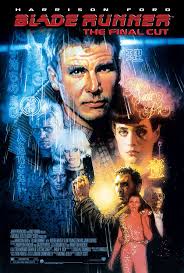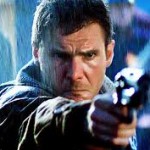Yesterday was Martin Luther King Day in the Excited States™ (not my phrasal ™, but Dr. Foth’s). I celebrated by studying concepts of spirituality with two friends. We didn’t mention Martin. Or movies.
(Quite incidentally, we did hear some Langston Hughes, because Langston Hughes. Johnny’s nuts for poetry, his own and recently that of Hughes, and can’t stop himself from reciting and reading aloud. He was never a Freedom Rider, but he’s still riding today. He is an old white guy, older than me! He burns.)
Also: I shopped, napped, put my basketball team through its awkward paces. Six kids have African backgrounds, but no remembrance of Martin. They’re young; no such excuse for me.
I was set for sleep by 9. Malcolm Gladwell’s David and Goliath was warming by my bedside. My laptop was on top of my lap (you do the math), confirming that I was free for repose, though a squadron of open tabs reminded me of great online reading that I could ignore for another day. Twitter called. Helplessly, unfortunately, I answered. It chirped of a movie I’d meant to see.
It wasn’t even Selma.
I threw on discarded sweats and jumped in a borrowed car. It made no sense to my bride. All the more reason to go! (But. Exhaustion. Compulsion. FOMO*.)
* Fear of Missing Out.
 Blade Runner. Better late than not at all. I had missed everything but the popcult references: the brooding, dark wetness of a dystopic 2019 imagination of Los Angeles: a somewhat detestable “hero” long before Daniel Craig made Bond a blonde sociopath; “offworld” and “replicants” and “time to die, now”; Harrison Ford before he played presidents; infra-dig references to Philip K. Dick’s 1968 source novel, Do Androids Dream of Electric Sheep?
Blade Runner. Better late than not at all. I had missed everything but the popcult references: the brooding, dark wetness of a dystopic 2019 imagination of Los Angeles: a somewhat detestable “hero” long before Daniel Craig made Bond a blonde sociopath; “offworld” and “replicants” and “time to die, now”; Harrison Ford before he played presidents; infra-dig references to Philip K. Dick’s 1968 source novel, Do Androids Dream of Electric Sheep?
It was director Ridley Scott’s “final cut”, a 2007 re-release of the rejigged 1982 classic that I’d only read about. It was my favourite rep cinema. I thought I should. Given the final words and pictures, Scott had eliminated the Harrison Ford character’s explanatory voice-over (which Ford had hated doing, I learned later), and reworked the ending to be less pursuit-of-happy-ish.
It’s another world, all right.
(There is also, coincidentally, no voiceover for this blog post. JH.com respects its readers’ intelligence, Lego skills and weave-ability.)
I walked out afterwards into a dark night, which felt like a colder, depopulated dystopic-L.A. I looked for replicants in the shadows. I did not dream of electric dishwashers, nor did I think of writing. I did not drink dark brown poisons from futuristic glasses, as Ford’s Deckard incessantly does, or impassively smoke thick and weedy cigarettes, as other characters do, but I did seek solace from Haagen-Dazs and Lays in a deserted convenience store.
I wondered. I still am.
What makes Deckard do it? Ford’s character is the titular Blade Runner, a special police assassin who hunts replicants, which are only legal off-world. He refuses the mission to “retire” the latest four replicants from the state-of-the-android-art Nexus 6 line. “I’m done.” Then he is convinced, obscurely, by a vague threat from his goofy-looking, decrepit and thoroughly unintimidating boss, something about being among the “little people”, perhaps some 2019 version of the 99%. (Or even 99.1% — the film drips with prescience about our rapidly growing divide between the Haves and the Have-Nots.) Deckard looks unmotivated, impossible to move, but he takes on the ‘droids anyway. (These are the droids he’s looking for. He never kills a human by mistake. So he says.) Does this make him human, or more like a machine?
The female characters are beautiful, remote, wide-eyed and inscrutable. All three are replicants. One believes, or wants to, that she is human.
The two above-the-title actresses are named Sean and Daryl, which is interesting. They are anything but androgynous, but their eyes are spooky and far away. (Young. Hannah.)
Rutger Hauer as the replicant leader — and head of the android philososphy
department — is Aryan Blonde, imperious, playful and mad. Differences from 1982: modern leading men must be Personal-Trainer-ed underwear models, superhero-ready. The “perfect” android, Hauer’s Batty, I couldn’t help noticing, had not done his crunches or won the audition with his perfectly sculpted (fl)abs. (I empathized.)
2019 Los Angeles sees never-ending rain. Its vast-majority underclass appears to be composed mainly of Chinese people and midgets. The rich and the replicants are white people in varying states of privilege, decadence and despair. Their well-appointed material circumstances are insanely dark, lonely. The faceless masses seem more alive, even the larcenous “little people”. (Why so many midgets?) (Wait, is that what Deckard’s boss threatens him with? That he’ll be remade as a runt? Can’t be.)
Deckard bumbles to his sour eventual “success”, which nobody (least of all us) can really celebrate. He’s saved by the femme fatale, by the mercy of a melancholy replicant, and of course by his gun. In true noir fashion, he drinks constantly and winces inscrutably. He survives killing blows during the times when, foolishly, he rushes in. In other words, although he’s regarded as an avenging angel of genius, he often comes across as Joe Average, Mr. Salt of the (darkly scorched) earth, just another humble American hero. Who doesn’t bruise much.
Unless he’s a replicant himself.
Gaff, a mystifying Edward James Olmos character, is an android (I guess) whose work is to help the humans kill other androids. Well. I don’t know why he does this, or how he does it. I don’t know why he suddenly speaks excellent English at the end when he apparently needed simultaneous translation from Chinese shopkeepers shortly after the opening credits. And then there was the origami. And the unicorns.
A shirtless Harrison Ford, in 1982, looks like a strong guy who played some high school football and worked as a carpenter. (He was a Hollywood carpenter before his acting career took off.) He doesn’t look blown-up and buffed like a modern A-lister with his personal chef and full-time bench-press spotter.
Neither Ford nor Scott felt the need to clear-cut or airbrush his ample chest hair. Chest hair! When were shirtless Hollywood men last allowed to be bushy?
Feeling the need for a bottom line? Some sense of order and completeness in reviewing? Okay: I liked Blade Runner. I was taken in by it, and disturbed by its discouraging vision of urban futures. From the perspective of 2015, its underplayed hints of environmental destruction, technological oppression and devastating economic disparity seem all the more powerful and relevant. It presents a compelling and mainly believable possible future, and I can see why most people who know about these things regard it as among the greatest science fiction films ever.
(Still, it’s fun to see what they got wrong, most notably that people still read newspapers made of actual paper. Well, at least Deckard does. Subtle heroism. And of course, there are flying cars, the ultimate marker of the obscenely rich and powerful. And corporate headquarters that look like Death Stars, though a brave and intrepid young man can always get inside. The computers are still big, Commodore (2000 and) 64s. Oops.)

Urban future cowboy Harrison/Deckard, with his problem-solving best friend. Guns don’t kill people; they kill *androids*.
I still don’t know why the “good guy” cop-assassins are called Blade Runners. They have no blades. There isn’t much running. It’s a cool title though, all the more culturally shaded and thematically interwoven when, in what we like to call Real Life, a heroic, double-amputee Olympic sprinter with bouncy prosthetic legs kills his girlfriend. “Accidentally.” (But ah: unless she was a replicant.) Pistorius* would have been a good name for a sci-fi detective. (Or a parody of a drunken Roman consul.)
* The Internet never dies: the disgraced athlete's website still glows with his goodness and accomplishments.
To conclude: Yes. I ran underclothed into the windchill, saw a movie, staggered to a frozen car with paranoid android thoughts, a weary brain and a sugar buzz. This is some of what I thought. None of it had much to do with Dr. King, but in typically retro fashion, I’m getting there, too.



I had movies on the brain this morning. Not Blade Runner or science fiction, but lists of suitable family entertainment for a student fundraiser that we’re planning at my school. I’m part of the Future Aces Leadership Team and the students have hatched an idea to run monthly movie nights. I love big-idea, inspirational indie films. We’ll leave it up to the students to select a movie for school viewing, but I’m hoping for a Selma, Pay it Forward, or Blindside type, but we’ll see. As for Blade Runner, I had my opportunity to watch it several times when I lived in Vancouver. Do you remember that night in Vancouver when you sat in the front row and watched Dead Man Walking, and I sat 10 rows back alone as well? I saw your Mount Hope baseball coat and I couldn’t wipe my tears away fast enough nor compose myself quickly enough to approach you after the film ended. Maybe in a different world we would have gone out for Chinese food and watched Blade Runner together back then. Weird. What I’m looking forward to is your Gladwell book review. I loved his chapter on the girls basketball team that went from zero to hero by embracing the David vs Goliath credo: work hard, play defence, run. I hope you can apply some of that to your team.